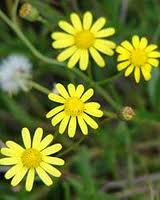State Will Use Moth in Battle Against Noxious Fireweed
The state Department of Agriculture has received federal approval for a biocontrol effort to combat the spread of an invasive plant that is toxic to livestock.
Fireweed, an invasive plant from Madagascar, has spread through 850,000 acres on Maui and the Big Island, according to a statement issued by Sen. Daniel Inouye’s office.
The US Department of Agriculture has given the state approval to release the arctiidae moth to control fireweed. The moth, which is also native to Madagascar, lays eggs on the plant which develop into caterpillars that consume the plant’s leaves and stems.
The plant has no natural predators in Hawaii and is resistant to drought, making it a threat to invade another 1.5 million acres in the state over the next decade, the statement said.
Fireweed is prolific, with each plant producing as many as 30,000 seeds. All parts of the plant contain an alkaloid that causes liver damage in livestock.
According to a study of the use of the moth for biocontrol published in the Journal of Applied Entomology, smaller infestations of fireweed that have occurred on Oahu and Kauai have been controlled through mechanical methods.
But the plant has spread too far for mechanical or herbicide control on the Big Island and Maui. The use of chemical control on the Big Island alone would cost an estimated $11 million per year, the study said.
“For the last decade, Hawaii’s cattle industry has been combating fireweed,” Inouye said. “It is my hope that this effort will help to ensure that Hawaii’s cattle industry will continue to thrive and help the state move toward greater food self-sufficiency.”
Fireweed, which grows to a height of approximately 20 inches, is believed to have been introduced to Hawaii in the 1980s in shipments of carpet grass seeds.















